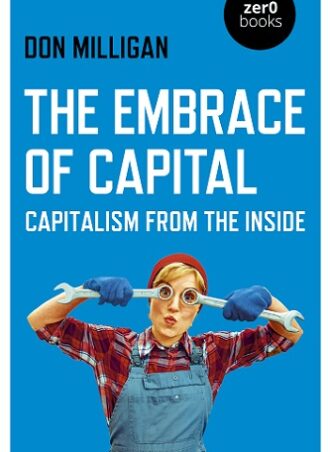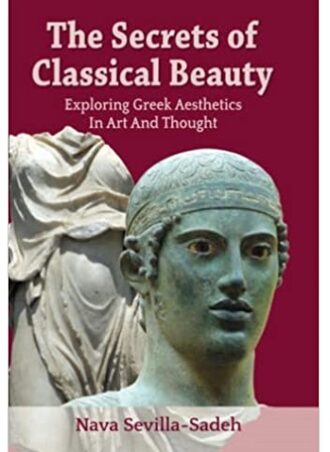
Café de Sophia
While in a café, sixteen-year-old Nate comes across a man who engages him in an intellectual conversation. Fascinated by the discussion, Nate befriends the man along with his other companions of philosophers in order to better understand his purpose and direction in life. Every encounter with the philosophers explores a different topic that shapes the stepping stones of Nate’s journey. This journey toward the beauty of speech, logic, and wisdom is told in the Socratic dialogue fashion through Nate’s perspective.

Egypt History And The Ancient Wisdom
The One Source of Truth nourishes the seeds of wisdom to sprout in each generation to remove the accumulated dust from the pyramid of totalitarian wisdom. The ancient wisdom of the archaic patriarch Thoth, Enoch, or Hermes, who founded civilization in ancient Egypt and left us the true philosophy of existence and creation.

The Embrace of Capital
The “spectre of communism” which Karl Marx confidently summoned in 1848 is now nothing more than a ghostly and ghastly dream, without form or substance. This is because working people have developed a love-hate relationship with capitalism. They hate insecurity, inequality, and greed, and love civic and political freedom. They love mass consumption, and accept the logic of commerce. Barreling along through wars, revolutions, epidemics, and crises of all sorts, working people in their millions have consistently dumfounded and dismayed the left, by their refusal to countenance any alternative to the capitalist mode of life. We have to ask: Is it possible to reverse this reality, and once again talk of the necessity of communism?

The FACTS: Humanity’s Last Hope
Is Humanity’s Last Hope the most important book written since the bible? We think so, but that’s for you to decide. Try this. finish reading the FACTS, then answer this simple question.

The Secrets of Classical Beauty: Exploring Greek Aesthetics in Art and Thought
Beauty became an almost repugnant word in contemporary art and thought; and, indeed, it has been dethroned in the modern-day art discourse. Such an approach stems from the perception of beauty as external only and therefore superficial and lacking in depth. Beauty in the ancient Greek world, in contrast, was given great importance, and the approach to it was layered, focusing on aspects beyond those of the exterior and the visual. This book engages with the essence of the concept of “beauty” in the Ancient Greek world and its manifestations in art, and questions such as: – What is “Classical beauty”? – Does such an ideal exist? – What is the relation between physical beauty and spiritual beauty? – What is the essence of male beauty and female beauty? – What are the metaphorical meanings of beauty in mythology? – How is human beauty manifested in art? – What are the relations between politics, homoeroticism, and beauty? – And are ancient concepts of beauty no longer relevant? These questions are discussed discerningly in the book, based on interdisciplinary research in the history and language of art in the Archaic, Classical and Hellenistic periods, with citations of myths and poetry, references to philosophy, religion, ancient sources, history, gender studies, and occasionally, some comparisons to contemporary.

Why We Hate: Understanding the Roots of Human Conflict
An insightful and probing exploration of the contradiction between humans’ enormous capacity for hatred and their evolutionary development as a social species Why We Hate tackles a pressing issue of both longstanding interest and fresh relevance: why a social species like Homo sapiens should nevertheless be so hateful to itself. We go to war and are prejudiced against our fellow human beings. We discriminate on the basis of nationality, class, race, sexual orientation, religion, and gender. Why are humans at once so social and so hateful to each other? In this book, prominent philosopher Michael Ruse looks at scientific understandings of human hatred, particularly Darwinian evolutionary theory. He finds the secret to this paradox in our tribal evolutionary past, when we moved ten thousand years ago from being hunter-gatherers to agriculturalists–a shift that paved the way for modern civilization. Simply put, as Ruse paraphrases, “our modern skulls house Stone Age minds.” Combining rigorous argument with an engaging and accessible style, Ruse makes frequent use of historical examples, examining the history of two World Wars, and the U.S. offensive against Iraq. He also gives many pertinent and up-to-date examples of prejudice, including the significance of Brexit and the systemic racism that lead to the Black Lives Matter movement. Ruse pays special attention to egregious cases of hatred, such as the treatment of Jews by the Third Reich, and to pressing contemporary issues, including the status of women. Ruse concludes with constructive suggestions for ways in which we might reconcile the contradictory aspects of our nature. Why We Hate will be of interest and value to a wide range of readers interested in the role of human nature in current events, as well as to readers interested in philosophy, the life sciences, social sciences (especially anthropology and archaeology), and beyond.